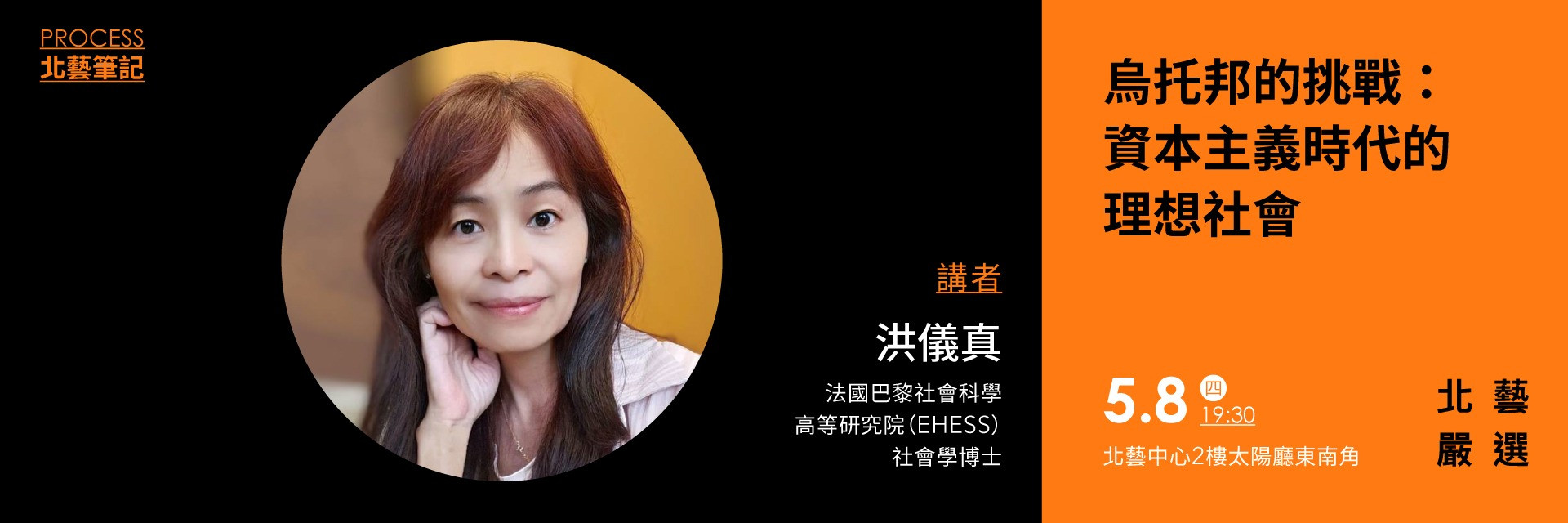Utopian theory has long been seen as the blueprint for an ideal society. Yet, in modern capitalist systems where lifestyles, values, and consumption have spun into complicated multitudes, do we still yearn for such an ideal world? How do economic and urban development driven by capitalism either integrate utopian ideals or, conversely, push the realization of utopias out into exile? In a society dominated by capitalism, what other equitable and harmonious alternatives might be viable?
Can a genuine utopia be implemented in highly developed economies? How do the themes of dystopian literature and calls for a return to historical forms of utopia each emerge from specific societal structures and the underlying nature of humanity?
■ Speaker | Yi-Chen Hong
Yi-Chen Hong holds a PhD in sociology from the École des hautes études en sciences sociales (EHESS) in Paris, specializing in the sociology of art. She currently serves as an adjunct assistant professor in the Departments of Sociology at National Chengchi University and National Taipei University. She is also a board member of the Taiwan Association for the Sociology of Arts and Culture, as well as a lecturer at the Trend Education Foundation and Art Living Cafe. Her expertise spans the sociology of art, cultural sociology, French social theory, visual culture studies, and modernist art. Her translation works include Cafés de la mémoire (Chantal Thomas) and The Man Who Died (D.H. Lawrence), covering fields as diverse as literature, philosophy, religion, and sociology.
